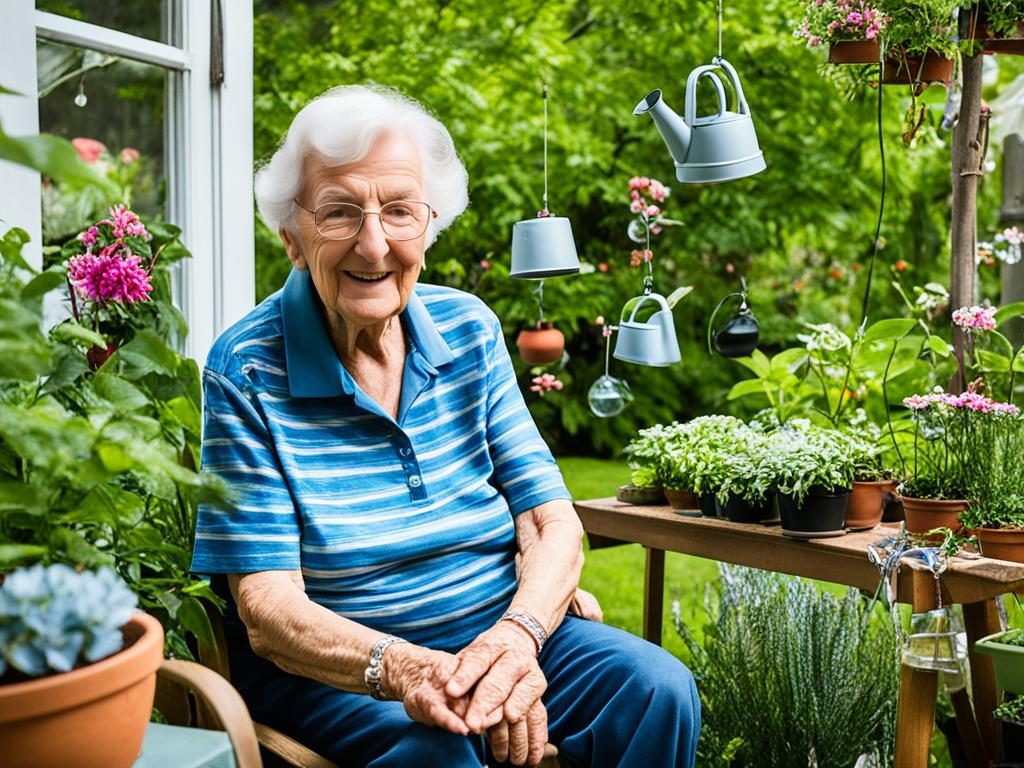Retirement is a time of freedom and possibility. It’s an opportunity to explore new interests and engage in activities that bring joy and fulfillment. Retirement hobbies play a crucial role in creating a vibrant and rewarding retirement experience. They provide avenues for personal growth, enhance mental and physical well-being, and foster meaningful connections with others. In this article, we will delve into a variety of retirement hobbies that can enrich your golden years and help you lead a fulfilling and enjoyable life.
Retirement hobbies offer numerous benefits, including improved mental health, physical fitness, and emotional well-being. They stimulate the mind, promote creativity, and provide opportunities for personal expression. Engaging in retirement hobbies has been shown to reduce the risk of depression, anxiety, and cognitive decline. Moreover, these activities foster social interaction, combating feelings of loneliness and isolation. Whether it’s pursuing a passion or trying something new, retirement hobbies can contribute to a fulfilling and vibrant life.
Physical and mental health are integral to a happy retirement, and retirement hobbies can play a pivotal role in maintaining both. Physical activities such as walking, swimming, or cycling can boost cardiovascular health, increase strength and flexibility, and improve overall fitness. Mental health benefits can be derived from hobbies that stimulate the mind, such as reading, puzzles, learning a musical instrument, or engaging in artistic pursuits. By regularly participating in enjoyable activities, you can enhance your overall well-being and enjoy a healthier retirement.
Retirement offers an opportunity to pursue hobbies that align with your passions and interests. Popular retirement hobbies for women include continued education, crafting, walking or hiking, yoga and meditation retreats, and volunteerism. Men, on the other hand, often gravitate towards hobbies such as cycling, golfing, fishing, carpentry or woodworking, food and wine adventures, and learning an instrument. These hobbies provide not only enjoyment and a sense of accomplishment but also avenues for personal growth and self-expression.
While some hobbies can be expensive, there are also plenty of affordable retirement activities that can be pursued on a budget. Gardening, book clubs, bicycling, playing an instrument, teaching English as a second language online, podcasting, cooking or baking, birding, walking or hiking, volunteering, writing, singing, and painting or drawing are all examples of low-cost or no-cost retirement hobbies. These activities offer opportunities for engagement, self-expression, and personal enjoyment without breaking the bank.
Senior living communities are often well-equipped to cater to the hobbies and interests of their residents. These communities offer a wide range of activities and amenities, including book clubs, gardening groups, cooking and baking classes, art and music therapy, exercise classes, foreign language classes, bingo nights, computer skills classes, and shopping trips. Engaging in retirement hobbies within a senior living community provides opportunities for socialization, the chance to make new friends, and a supportive environment where residents can pursue their interests and hobbies while feeling a sense of belonging and purpose.
Key Takeaways:
- Retirement hobbies contribute to a fulfilling and vibrant retirement experience.
- Engaging in retirement hobbies promotes mental and physical well-being.
- Physical activities improve cardiovascular health and overall fitness.
- Mental stimulation through hobbies enhances cognitive function.
- Popular retirement hobbies include continued education, crafting, and outdoor activities.
- Affordable retirement hobbies can be pursued on a budget.
- Senior living communities offer a range of activities and amenities for residents to pursue their hobbies.

The Importance of Retirement Hobbies
Retirement hobbies are not just a source of enjoyment; they play a crucial role in promoting mental health, physical well-being, and emotional balance for seniors. Engaging in hobbies during retirement can have a profound impact on overall quality of life.
Studies have shown that retirement hobbies contribute to improved mental health by keeping seniors mentally sharp and reducing the risk of cognitive decline. Pursuing activities that stimulate the mind, such as reading, puzzles, or learning a new instrument, can enhance cognitive function and foster creativity. These hobbies provide mental stimulation and help seniors maintain a sense of purpose and fulfillment.
“Engaging in hobbies can help seniors stay mentally sharp, foster creativity, and develop new skills.”
Retirement hobbies also have significant physical health benefits. Participating in physical activities like walking, gardening, or swimming can improve cardiovascular health, increase strength, flexibility, and overall physical fitness. Maintaining an active lifestyle through hobbies not only contributes to better physical health but also helps prevent the development of chronic diseases.
Emotional well-being is another crucial aspect of retirement, and hobbies play a vital role in maintaining emotional balance. Engaging in enjoyable activities provides a sense of joy, pleasure, and accomplishment, which can boost overall happiness and contentment. Additionally, retirement hobbies offer opportunities for social interaction and engagement, combating feelings of loneliness and promoting a sense of belonging in community settings.
To illustrate the significance of retirement hobbies, let’s take a look at the following table:
| Benefits of Retirement Hobbies | Impact |
|---|---|
| Enhanced mental health | Improved cognitive function and reduced risk of depression and anxiety. |
| Physical well-being | Improved cardiovascular health, strength, flexibility, and physical fitness. |
| Emotional balance | Improved overall happiness, joy, and a sense of accomplishment. |
| Social interaction | Opportunities for connection, combating loneliness and fostering a sense of community. |
Health Benefits of Retirement Hobbies
Retirement hobbies offer numerous health benefits for seniors. Engaging in physical activities such as walking, hiking, swimming, or cycling can improve cardiovascular health, increase strength and flexibility, and enhance overall physical fitness.
Hobbies that stimulate the mind, such as reading, puzzles, learning a new instrument, or engaging in artistic activities like painting or drawing, provide mental health benefits. Regular participation in retirement hobbies has been shown to reduce the risk of chronic diseases, improve cognitive function, and promote overall well-being.

| Physical Health Benefits | Mental Health Benefits |
|---|---|
| Improved cardiovascular health | Enhanced cognitive function |
| Increased strength and flexibility | Reduced risk of depression and anxiety |
| Enhanced overall physical fitness | Stress reduction |
Dedicating time to retirement hobbies not only enhances physical health but also promotes mental and emotional well-being. By incorporating enjoyable activities into your daily routine, you can experience the multiple benefits that retirement hobbies provide.
Popular Retirement Hobbies
Retirement opens up a world of opportunities for pursuing hobbies and exploring new interests. Here are some of the most popular retirement hobbies enjoyed by women and men:
Hobbies for Women:
- Continued Education: Many women enjoy taking classes and learning new skills, whether it’s through online courses or attending local workshops.
- Crafting: Quilting, weaving, and knitting are popular crafting hobbies that provide a creative outlet and a sense of accomplishment.
- Walking or Hiking: Women often find solace and physical exercise in walking or hiking, allowing them to connect with nature and maintain an active lifestyle.
- Yoga and Meditation Retreats: These retreats provide an opportunity for women to relax, rejuvenate, and focus on their physical and mental well-being.
- Volunteerism: Many women dedicate their time to volunteering for causes close to their hearts, making a difference in their communities and finding fulfillment in helping others.
Hobbies for Men:
- Cycling: Men often enjoy the thrill of cycling, whether it’s leisurely rides in the countryside or embarking on challenging bike tours.
- Golfing: Golf provides men with a social and competitive outlet, allowing them to spend time outdoors while honing their skills.
- Fishing: Fishing offers men a peaceful escape, connecting with nature and enjoying the thrill of the catch.
- Carpentry or Woodworking: Many men find joy in working with their hands, creating beautiful and functional pieces of furniture or engaging in carpentry projects.
- Food and Wine Adventures: Exploring different cuisines and fine wines can be a fulfilling hobby for men who appreciate gastronomy and the culinary arts.
- Learning an Instrument: Music enthusiasts often take up an instrument in retirement, allowing them to express themselves creatively and enjoy the therapeutic benefits of music.

These popular retirement hobbies bring joy, fulfillment, and opportunities for personal growth and self-expression. Whether it’s continuing education, crafting, exploring nature, volunteering, or pursuing exciting adventures, retirement offers the perfect time to indulge in the activities that bring you the most happiness.
Affordable Retirement Hobbies
While some hobbies may require a significant investment, there are many retirement activities that can be pursued on a budget. Whether you’re looking for low-cost or no-cost hobbies, there are plenty of options available to keep you engaged and entertained during your golden years. Here are some affordable retirement hobbies that you can consider:
Gardening
Gardening is a rewarding and therapeutic hobby that allows you to connect with nature and create a beautiful outdoor space. From growing flowers to cultivating your own fruits and vegetables, gardening offers a sense of accomplishment and fulfillment. Plus, it doesn’t require a large financial investment, as you can start small and gradually expand your garden over time.
Book Clubs
Joining a book club is a fantastic way to indulge in your love for reading while also fostering social connections. Most book clubs operate on a rotation system, where members take turns choosing the book for the month. This ensures a diverse range of reading material and allows for engaging discussions with fellow book enthusiasts.
Bicycling
Bicycling is an excellent low-impact exercise that provides numerous health benefits, from improved cardiovascular fitness to strengthened muscles and joints. You can explore scenic routes in your neighborhood or join local cycling groups for social rides and events. All you need is a reliable bike and a helmet to get started.
Playing an Instrument
If you have always wanted to learn how to play a musical instrument, retirement is the perfect time to do so. There are plenty of online tutorials and resources available for free or at a low cost. Whether it’s the guitar, piano, or ukulele, playing an instrument can bring immense joy and creativity into your life.
Teaching English as a Second Language Online
If you have a passion for teaching and connecting with people from different cultures, consider becoming an online English language tutor. There are various platforms where you can offer your services and help non-native speakers improve their language skills. This hobby not only allows you to make a positive impact but also provides a flexible schedule and the opportunity to earn a supplemental income.
Podcasting
If you enjoy storytelling, sharing knowledge, or discussing your interests, starting a podcast can be a fulfilling and no-cost hobby. With a basic recording setup and some creativity, you can create your own podcast episodes on topics that resonate with you. It’s a great way to express yourself and connect with a wider audience.
Cooking or Baking
Exploring new recipes and trying your hand at cooking or baking can be a delightful and affordable retirement hobby. Experimenting with different flavors and techniques allows you to unleash your culinary creativity and create delicious meals for yourself or loved ones. You can also join cooking groups or attend local workshops for additional inspiration and social interaction.
Birding
Immerse yourself in nature and discover the fascinating world of birds through birdwatching or birding. All you need is a pair of binoculars, a field guide, and a love for observing wildlife. You can explore nearby parks, nature reserves, or even your own backyard to spot various bird species and learn more about their behaviors and habitats.
Walking or Hiking
Walking or hiking is a fantastic way to stay active, enjoy the outdoors, and immerse yourself in nature. Whether it’s exploring local trails, participating in organized group hikes, or simply taking leisurely walks in your neighborhood, these activities cost nothing and offer countless health benefits.
Volunteering
Volunteering is a meaningful and gratifying way to give back to your community and make a positive difference in the lives of others. There are numerous volunteer opportunities available, ranging from assisting at local charities and community centers to mentoring students or helping out at animal shelters. Find a cause that aligns with your passions and interests, and contribute your time and skills to create a more compassionate world.
Writing, Singing, and Painting or Drawing
Engaging in creative activities such as writing, singing, painting, or drawing can provide endless joy and self-expression. Whether you want to start journaling, write short stories, sing in a choir, or explore different painting techniques, these hobbies allow you to tap into your creative side and express yourself freely.
These affordable retirement hobbies offer opportunities for self-expression, personal enjoyment, and engagement without the need for expensive equipment or memberships. Embrace the joy of pursuing your passions and ensure that your golden years are filled with fulfillment and meaningful experiences.
Retirement Hobbies in Senior Living Communities
Senior living communities offer a vibrant array of activities and amenities designed to cater to the diverse interests and hobbies of their residents. These communities provide a supportive and engaging environment where retirees can pursue their retirement hobbies while enjoying a sense of belonging and purpose.
Residents of senior living communities have the opportunity to participate in a wide range of activities that promote socialization and personal enrichment. From book clubs to gardening groups, cooking and baking classes, pet therapy, music and art therapy, exercise classes, foreign language classes, bingo nights, computer skills classes, and even shopping trips, there is something for everyone.
These engaging activities create opportunities for seniors to socialize, make new friends, and connect with like-minded individuals who share similar interests. Whether it’s joining a book club and discussing a favorite novel, getting hands-on with gardening and exploring the joys of planting, or learning a new skill in a cooking class, senior living communities foster an environment that encourages interaction and the pursuit of shared passions.
Being part of a senior living community means enjoying the companionship of others, building meaningful relationships, and experiencing a sense of community. The range of activities available ensures that residents can continue their hobbies and discover new ones, creating a fulfilling and enjoyable retirement experience.
Conclusion
Retirement is a time of great potential, offering the chance to explore new experiences, delve into personal interests, and indulge in enjoyable activities. The role of retirement hobbies in creating a fulfilling and vibrant retirement cannot be understated. These hobbies not only promote mental and physical well-being but also foster personal growth and provide opportunities for social connection.
Engaging in retirement hobbies such as gardening, playing an instrument, volunteering, or writing can bring immense joy and purpose to your life during this golden phase. By embracing the myriad of opportunities that retirement presents, you can create a fulfilling and vibrant retirement experience.
Discover the retirement hobbies that resonate with you, the activities that awaken your passion and sense of adventure. Whether it’s nurturing a garden, coaxing beautiful melodies from a musical instrument, making a difference through volunteer work, or expressing your thoughts and stories through writing, engaging in activities that bring you joy will enrich your retirement years, leaving you with a profound sense of fulfillment and contentment.
So, as you embark on this new chapter of your life, give yourself permission to explore, experiment, and indulge in enjoyable retirement hobbies. Make the most of this precious time to create a vibrant retirement filled with enriching experiences, personal satisfaction, and cherished memories. Embrace the opportunities that retirement offers and design your own meaningful and truly fulfilling retirement journey.
FAQ
What are retirement hobbies?
Retirement hobbies are activities that individuals engage in during their retirement years for enjoyment, personal growth, and fulfillment.
Why are retirement hobbies important?
Retirement hobbies are important because they promote mental health, physical well-being, and emotional balance. They help seniors stay mentally sharp, foster creativity, reduce the risk of depression and cognitive decline, and provide opportunities for social interaction and overall well-being.
What are the health benefits of retirement hobbies?
Retirement hobbies have numerous health benefits. Engaging in physical activities improves cardiovascular health, strength, flexibility, and overall physical fitness. Hobbies that stimulate the mind, such as reading or puzzles, enhance mental health. Regular participation in retirement hobbies reduces the risk of chronic diseases, improves cognitive function, and promotes overall well-being.
What are some popular retirement hobbies for women?
Popular retirement hobbies for women include continued education, crafting (quilting, weaving, knitting), walking or hiking, yoga and meditation retreats, and volunteerism.
What are some popular retirement hobbies for men?
Popular retirement hobbies for men include cycling, golfing, fishing, carpentry or woodworking, food and wine adventures, and learning an instrument.
What are some affordable retirement hobbies?
Affordable retirement hobbies include gardening, book clubs, bicycling, playing an instrument, teaching English as a second language online, podcasting, cooking or baking, birding, walking or hiking, volunteering, writing, singing, and painting or drawing.
What retirement activities are available in senior living communities?
Senior living communities offer a wide range of activities and amenities, such as book clubs, gardening groups, cooking and baking classes, pet, music, and art therapy, exercise classes, foreign language classes, bingo nights, computer skills classes, and shopping trips. These activities promote socialization, friendship, and a supportive environment for pursuing retirement hobbies.
Why should I have retirement hobbies?
Retirement hobbies play a vital role in creating a fulfilling and vibrant retirement by promoting mental and physical well-being, fostering personal growth, and providing opportunities for social connection and enjoyment.


